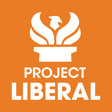
Liberalism as an Anti-Fragile System | Armin Navabi
In this episode of Project Liberal, co-hosts Joshua Eakle and Shawn Huckabay sit down with Armin Navabi, founder of Atheist Republic and an outspoken advocate for secularism, religious freedom, and liberalism. Together, they explore Armin’s fascinating personal journey from his upbringing in Iran to becoming one of the world’s most prominent atheist activists. Along the way, the conversation unpacks the intersection of secularism and liberalism, the evolution of the New Atheist movement, and the challenges of defending liberal values in a polarized world.
Topics Discussed:
- Armin’s personal journey to secularism and his efforts to build Atheist Republic
- The New Atheist movement’s evolution and its relationship with liberalism
- How secularism fosters freedom and challenges authoritarian systems
- The role of skepticism and humanism in shaping liberalism
- Liberalism as an adaptive, antifragile system in the face of populist challenges
- The importance of defending liberalism globally, from Europe to Iran
- The interplay of religion, culture, and liberal values in shaping society
Armin Navabi shares powerful insights on the resilience of liberalism, the necessity of skepticism, and the universal desire for freedom. This episode offers a thought-provoking discussion on the forces shaping modern society and why liberalism remains a vital framework for progress.
Links:
- Atheist Republic: https://www.atheistrepublic.com/Armin
- Youtube: https://www.youtube.com/@AtheistRepublic
- Project Liberal : Join Here
